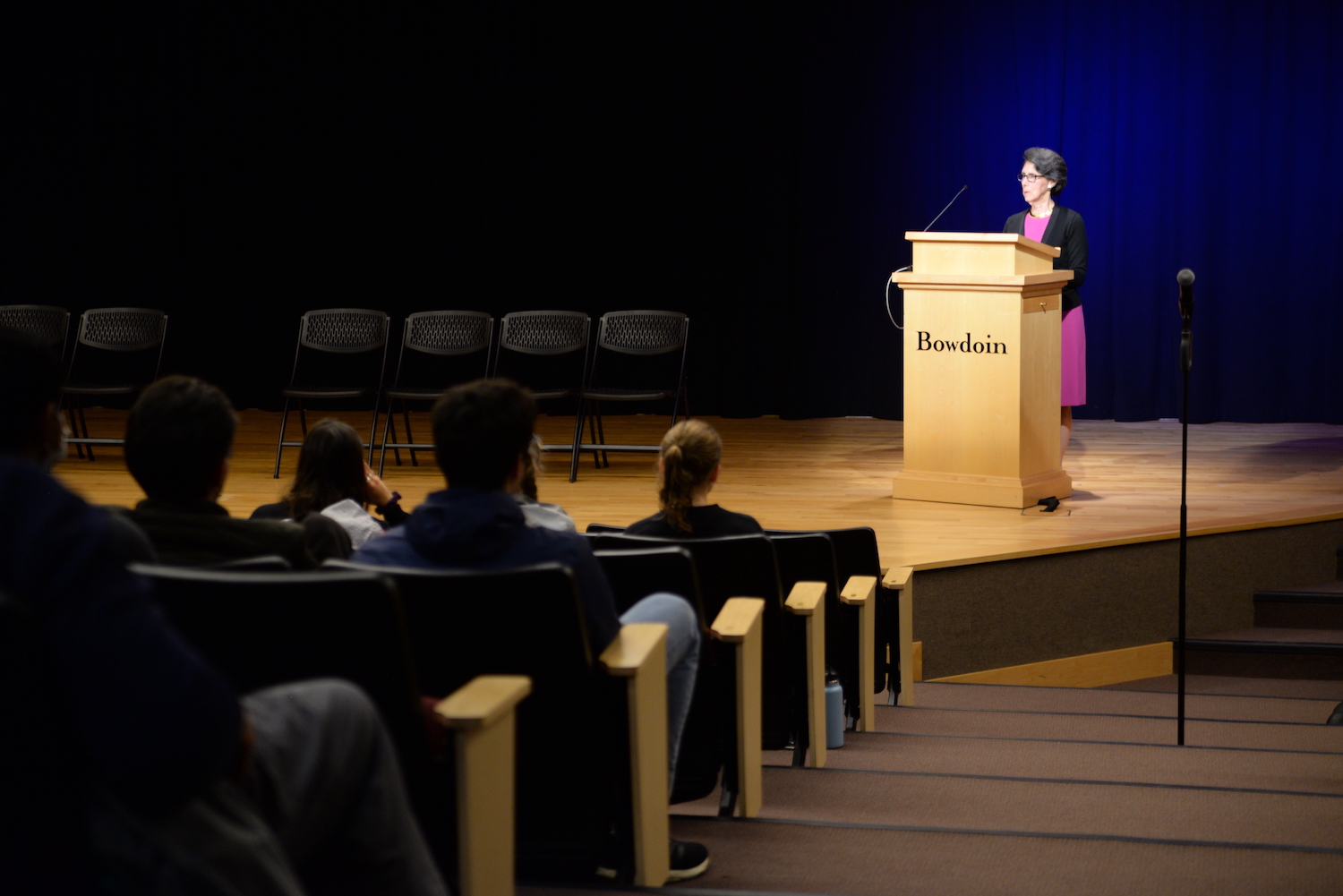Bowman gives lecture about polling impact on public opinion ahead of midterms
September 23, 2022
 Cora Dow
Cora DowAhead of the midterm elections this fall, the College hosted Karlyn Bowman, a distinguished senior fellow emeritus at the American Enterprise Institute, who discussed public opinion polling in a talk on Monday night in Kresge Auditorium. Bowman’s lecture was co-sponsored by the Office of the President of the College in addition to the Department of Government and Legal Studies. The talk was a part of the John C. Donovan Lecture Fund.
The lecture, originally scheduled for April 2020 but rescheduled due to the pandemic, lasted just over an hour, with Bowman speaking for the first thirty minutes before opening up the floor for student questions.
Bowman emphasized the importance of understanding what polls can teach us. She discussed issues that the American public has changed opinions on and others that have remained consistent.
“If you understand these three central properties [of polling]: change, continuity and contradiction, I believe that you can successfully interpret the polls and understand public opinion,” Bowman said.
Starting with how the American public’s perception of individuals who can hold office has changed, Bowman then gave examples of all three patterns in polling practices.
“Over the years, Gallup has asked about willingness to vote for all different kinds of people,” Bowman said. “The majorities of America tell the pollsters that they are open to voting for a qualified individual in almost every category, including gays and lesbians, Muslims, evangelical Christians, just to name a few … The only group that doesn’t reach a majority in Gallup’s long list today is a socialist.”
Bowman also made note of how this openness to vote for qualified individuals within these groups has grown mightily since the early- and mid-20th century, as the opinions of the American public that change over time are often related to social issues.
International diplomacy, however, is something that the American public has had a consistent opinion of for a number of years.
“In 1947, Gallup asked Americans this question: is it better for the future of the United States to play an active role in foreign affairs or is it better for the United States to stay out? That year, 65 percent said it was better for the U.S. to be active and 25 percent to stay out,” Bowman said. “That question has been asked about 40 times since then, and similar percentages continue to want us to play an active role.”
The third pillar of understanding polling, according to Bowman, is contradiction.
“We want that strong, assertive military, but we are always reluctant to put our troops in harm’s way,” Bowman said. “We want to get the government off the backs of business, but at the same time we want the government to play a major role in our lives, especially in areas involving health and safety.”
Izzy Cunha ’26 attended the lecture and asked a question about any upcoming political races Bowman found particularly interesting during the question and answer portion of the event. In addition to listening to Bowman speak at Kresge, Cunha also had lunch with her early that day.
“Now I think that polling is unreliable,” Cunha said. “[Before], I thought that polling was pretty fair, but the way that polls are worded and the data set that is collected has a big impact.”
Professor of Government and Legal Studies Michael Franz, who initially invited Bowman to campus, wants students to remember these three pillars of polling.
“I think that is the key takeaway from me,” Franz said. “Over the course of a hundred years, Americans have changed their minds on many different things, they haven’t changed their minds on lots of different things and on some things, we don’t know what they think. That’s a pretty interesting set of insights.”

Comments
Before submitting a comment, please review our comment policy. Some key points from the policy: